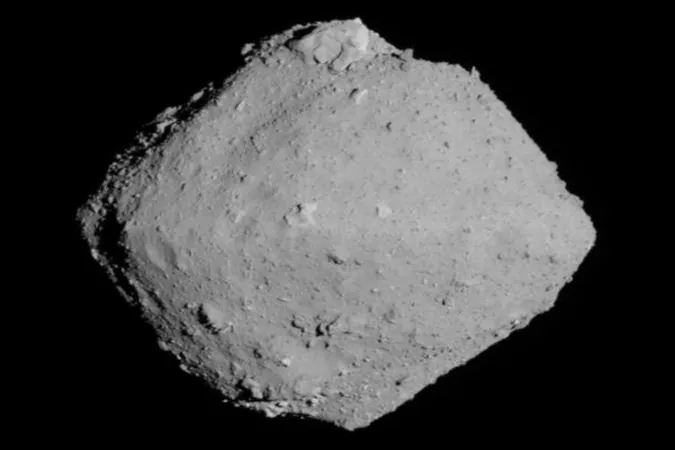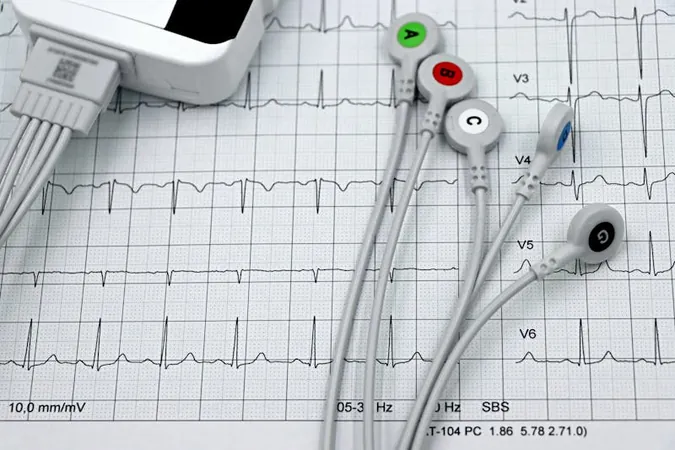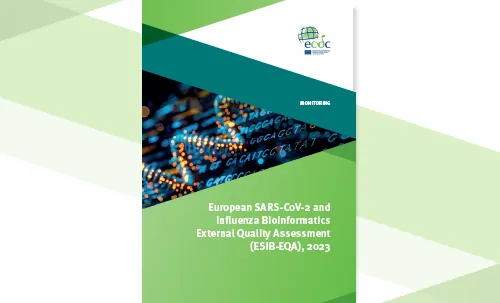
Astounding Discovery: Microbial Life Found in Asteroid Sample Defies Expectations!
2024-11-23
Author: Wei
In a shocking revelation, researchers have stumbled upon evidence of microbial life in a sample from the asteroid Ryugu, an unexpected twist that underscores the formidable challenges of ensuring extraterrestrial samples remain pristine.
A dedicated team from Imperial College London has unveiled their findings, revealing that the microorganisms discovered in the Ryugu samples, retrieved by Japan’s Hayabusa2 mission back in 2019, have their origins right here on Earth. This startling discovery indicates that despite stringent contamination protocols, Earthly microbes managed to infiltrate the asteroid sample during its time on our planet. The compelling results have been formally published in the reputable journal, Meteoritics and Planetary Science.
Typically, the study of space materials involves meteorites that have fallen to Earth, which are extensively contaminated by earthly conditions by the time they are analyzed. Unfortunately, this means that researchers often struggle to gather pure data about the cosmos. However, groundbreaking missions like Japan’s Hayabusa2 and NASA’s OSIRIS-REx promise to change that narrative by collecting samples directly from asteroids in space. These samples were then meticulously handled upon their return to Earth, with the hope that they would remain uncontaminated.
The Hayabusa2 mission successfully collected approximately 5.4 grams (or about a teaspoon’s worth) of rocks, pebbles, and dust from the distant Ryugu asteroid, located nearly 200 million miles from Earth. Upon returning, the spacecraft safely delivered the samples inside an expertly sealed capsule that made a soft landing at the Woomera Range Complex in the South Australian outback in 2020.
To minimize contamination, the capsule was transported to a state-of-the-art facility in Sagamihara, Japan, designed specifically for handling asteroid samples. The initial opening occurred in a vacuum room, followed by a transfer to a pressurized environment with a constant nitrogen flow to block out any potential Earthly contaminants. The samples were then placed in nitrogen-filled containers and sent globally for extensive analysis.
The researchers investigating the Ryugu samples were astonished to discover thin rods and filaments of organic matter, interpreted as thread-like microorganisms. The analysis concluded that these organisms had terrestrial origins, revealing that the team's meticulous contamination prevention protocols were, in retrospect, insufficient.
This incident raises critical questions for upcoming missions; for instance, NASA’s recent sample retrieval from the asteroid Bennu, which was completed in 2023, also employed similar contamination avoidance strategies, and so far, no Earthly microbial presence has been reported in that material.
Ryugu belongs to a category of carbonaceous asteroids believed to be among the primordial building blocks of our solar system. Investigating these asteroids in laboratory settings could unlock secrets about the formation of the solar system and offer insights into the conditions that led to life on Earth. Previous analyses of Ryugu samples already flagged the existence of organic molecules, alluding to the possibility that key ingredients for life may have arrived on our planet via asteroid impacts.
As scientists continue to explore the elusive mysteries of the cosmos, the challenge of maintaining sample purity is proving to be a significant obstacle, illuminating just how complex our universe truly is. This new discovery may pave the way for deeper research into the origins of life and the importance of environmental preservation, both on Earth and beyond!



 Brasil (PT)
Brasil (PT)
 Canada (EN)
Canada (EN)
 Chile (ES)
Chile (ES)
 España (ES)
España (ES)
 France (FR)
France (FR)
 Hong Kong (EN)
Hong Kong (EN)
 Italia (IT)
Italia (IT)
 日本 (JA)
日本 (JA)
 Magyarország (HU)
Magyarország (HU)
 Norge (NO)
Norge (NO)
 Polska (PL)
Polska (PL)
 Schweiz (DE)
Schweiz (DE)
 Singapore (EN)
Singapore (EN)
 Sverige (SV)
Sverige (SV)
 Suomi (FI)
Suomi (FI)
 Türkiye (TR)
Türkiye (TR)